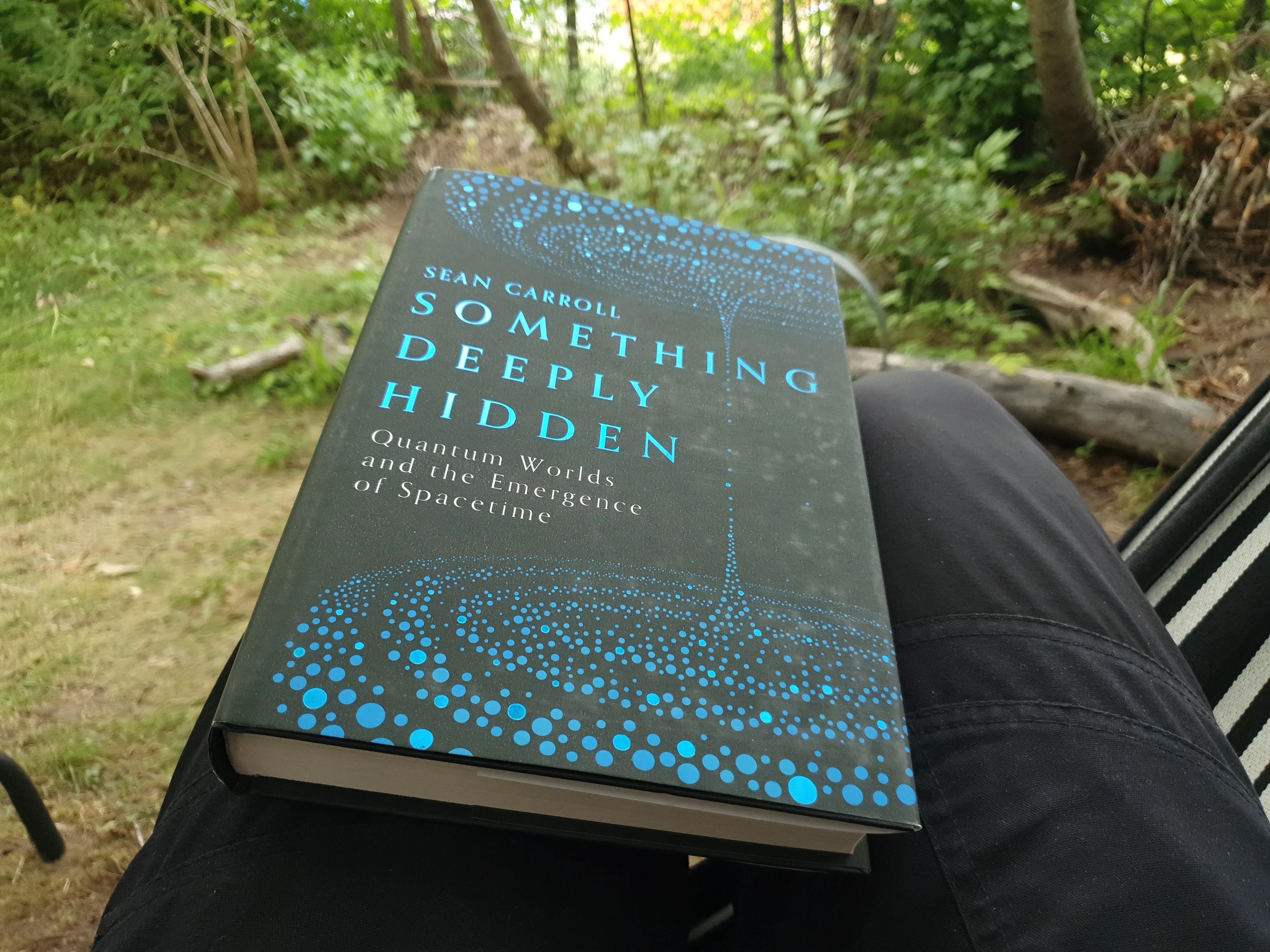Tl;dr: Someone please explain to me why some physicists think something could ever cross the event horizon of a black hole.
There is a conflict between my understanding of what the event horizon of a black hole is vs the way that many theoretical physicists talk about them.
I understand that a result in general relativity is that time progresses more slowly in the presence of energy, and this is why light bends around massive objects.
The way I understand the dynamics around a black hole is that the surface of an event horizon is the region of space where the energy is so great that time literally grinds ~~to~~towards a halt (edit/clarification: from the perspective of an observer farther out). Light moves at the speed of causality, and when causality slows down, so does light. Light is bent and redshifted due to time dilation, and only when time stops does the wavelength of light go to zero. That's the event horizon as I understand it.
If an object falls towards a black hole, it shouldn't matter if we are that object or if we're just observing it from farther away, everyone should agree that it never crosses the boundary of the event horizon.
From a spectating observer's perspective, the object is redshifted until it fades entirely as it gradually stops moving through time (so light stops being emitted from it). But it will only ever approach the boundary asymptotically; it will never cross it.
~~From the perspective of the object itself, the universe around it will progressively speed up and the entirety of the history of the universe will play out behind it~~ (Edit: that only happens if the object accelerates to remain stationary). An infinite amount of time would pass everywhere else before it crosses the horizon. Now, that will never happen if black holes evaporate in finite time (and we have good reason to think they do). The black hole will evaporate long before any eternity passes anywhere. The more slowly you move through time, the faster this process will appear to you. When you are more or less frozen in time, the black hole will be evaporating at a rate that approaches 'instantaneously' - so the closer you get to it, the hotter it will appear and the faster it evaporates. You and everything else would literally radiate away from this noticeably shrinking event horizon before ever crossing it.
So, in this view, I feel utterly confused by physicists talking about "what it's like to cross the event horizon" or "what the interior of a black hole is like". Either my understanding is incorrect, or these physicists are just indulging themselves with hypotheticals rather than thinking about physics (or working on alternative models where black holes are fundamentally nothing like what I describe).
It's most likely me not understanding this properly, so.. what am I missing?
Update
As I mentioned in this comment, it has been shown that an event horizon may never form at all, and that all one ever sees is a shell of fading signatures followed by radiation from all the matter that falls into it.
I have more to learn about the particular dynamics around the area surrounding a black hole, but I believe I've managed to reduce my antecedents to the assumption that quantum information is conserved and the following counterfactuals, which appear promisingly independent of whichever dynamical model one might prefer:
- A sufficiently long-lived asymptotic (sufficiently distant) observer would be able to identify a particular point in time at which a black hole will have fully evaporated.
- A sufficiently long-lived asymptotic observer would be able to track the signature of something falling towards a black hole until it is radiated out.
Counterfactual (1) is supported by the prediction of Hawking radiation and means that the black hole has a finite life span. Counterfactual (2) is supported by the common claim that, to an observer far away, the wavelength of emitted light from an infalling object will go towards infinity as they get closer to the event horizon.
This means that the observer just has to wait long enough to detect each subsequent photon until the source of the emission has been radiated out, and so the observer is a witness of the fact that the infalling object was never inside the event horizon. For information to be conserved, there can never be disagreement between the objective experience of the witness and the information encoded in the radiation, and so if the infalling observer were to be reconstructed after being spat back out by the black hole, it would agree that it was never inside the horizon.
Feedback on my reasoning would be very welcome.

 .
.
There is no rule that the angles of a triangle add to 180 degrees. It only holds true in Euclidean geometry, which this is not.